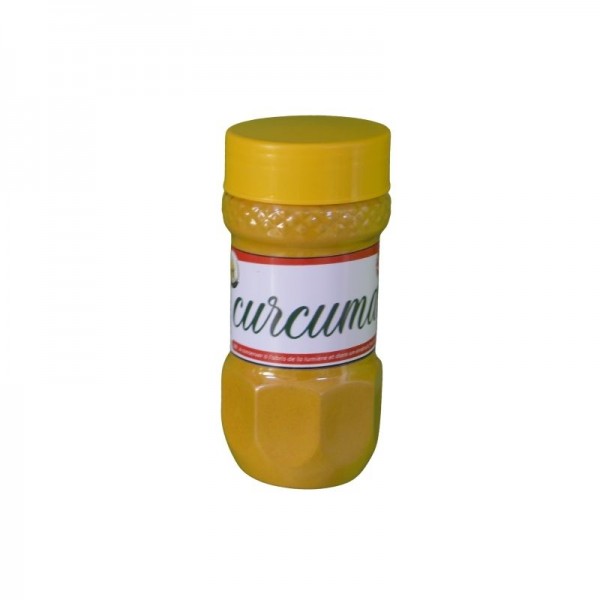



Gastrointestinal protector and powerful anti-inflammatory, Turmeric treats digestive disorders, soothes pain due to gastritis and other inflammations of the intestine and plays a protective role for the stomach and liver.
Internal use
External use
Antibacterial and anti-inflammatory, turmeric can be applied as a poultice to treat pathologies such as eczema, psoriasis or fungal infections.
Usual therapeutic indications
Dosage
Precautions for use of turmeric
If turmeric has never presented harmful effects, as a precaution, consumption in high doses is not recommended for pregnant women. In addition, always in high dose, turmeric can cause irritation of the mucous membranes; therefore, people with gastric ulcers should use it with caution.
Contraindications
Turmeric is contraindicated in case of obstruction of the bile ducts, by stones for example.
Side effects
Turmeric has no side effects on humans.
Interactions with medicinal plants or supplements
Like all anti-inflammatory drugs, turmeric can have its effects multiplied by taking other plants with the same properties at the same time. For better absorption of curcumin, you can combine black pepper and ginger with turmeric.
Drug interactions
Turmeric can multiply the effects of anti-inflammatory drugs.
Data sheet